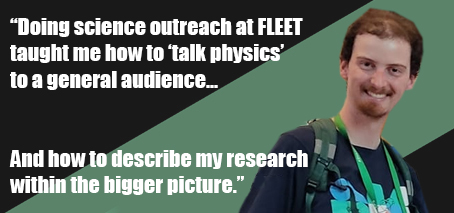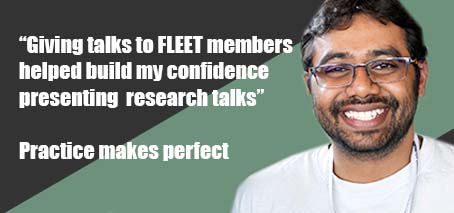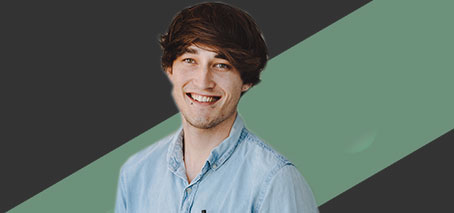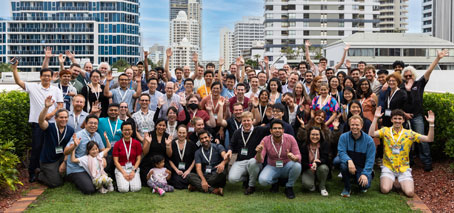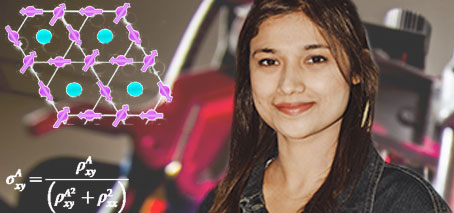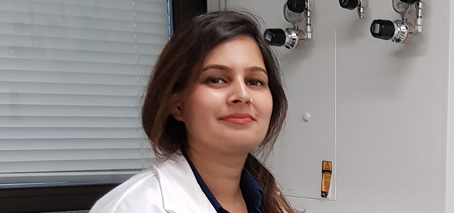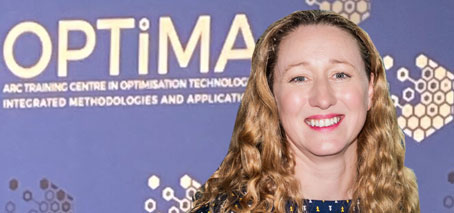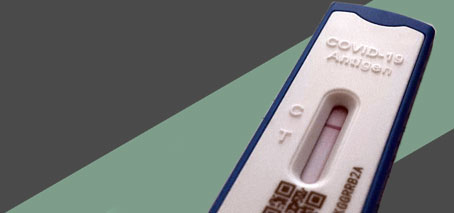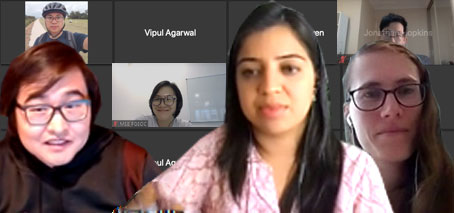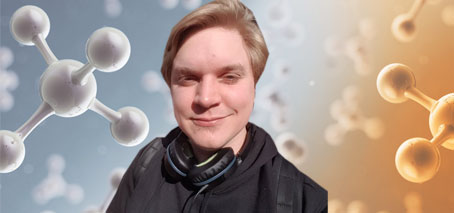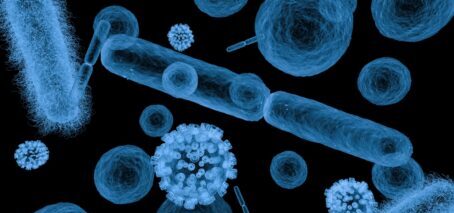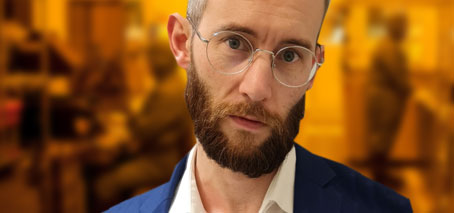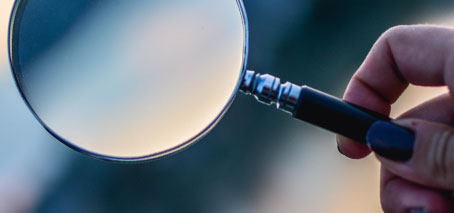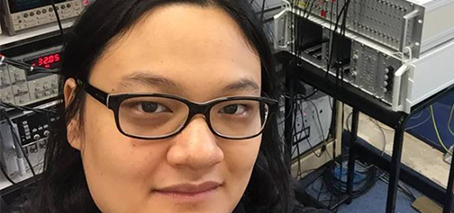Bernard Field was one of the earliest of FLEET PhD students, joining the Centre in 2018 originally as an Honours student, then a PhD student in 2019 under Agustin Schiffrin and Nikhil Medhekar. His PhD research focused on correlated electrons in a frustrated 2D lattice, within FLEET’s theme 1. We interviewed Bernard about his career path after leaving FLEET (he …
Alumni interview: Dhaneesh Kumar
Dhaneesh Kumar was one of the original cohort of FLEET PhD students when the Centre was launched in 2017. We interviewed Dhaneesh about his career path after leaving FLEET (he completed his PhD in May 2021), and how he has used his technical and collaboration training at FLEET in his new position as a postdoc at the Max-Planck Institute for …
Where are they now? Oliver Paull
Oliver Paull was one of the original cohort of FLEET PhD students when the Centre was launched in 2017. We interviewed Oliver about his career path after leaving FLEET (Oliver completed his PhD in July 2022), and how he has used his technical and collaboration training at FLEET in his new position as a postdoc at Unité Mixte de Physique, …
FLEET Legacy Meeting
FLEET members gathered in Surfer’s Paradise Queensland recently for the Centre’s final meeting. The FLEET Legacy Workshop celebrated seven years of transformative innovation, capacity building, and future STEM leaders development. Presentations by Governance Chairs, Centre leaders and early-career researchers covered research highlights across the Centre, as well as innovations in STEM equity, skills development, and outreach. Some impressive stats over …
Alumni profile: Quantum materials researcher Wafa Afzal
A note from previous FLEET PhD candidate Dr. Wafa Afzal, still researching novel materials, now at Archer Materials I was a PhD student at FLEET, based at the University of Wollongong under the supervision of Prof. Xiaolin Wang, studying the electrical and magnetic properties of topological Weyl semimetals. I’m still researching novel materials, now in the Quantum team at Archer …
Hareem Khan: FLEET alum
Currently applying materials skills learned at FLEET/RMIT to improve solar technologies, at CSIRO Greetings from CSIRO! I was a PhD student at FLEET / RMIT from 2017 to 2020, working on the development of piezoelectric and sensing applications of atomically thin materials. “The thing I enjoyed most about FLEET, other than the technical aspects of my work, was the sense …
FLEET alum Charlotte Hurry, business manager at OPTIMA
Hi, I’m Charlotte! At FLEET I was the Executive Officer working as part of the Business Team. I really enjoyed the variety in the job – no two days were ever the same. These days, I’m the Business Manager for an ARC Industrial Transformation Training Centre, OPTIMA. Which mostly means I’m a project manager. The Centre runs for five years …
From theoretical physicist at FLEET to science editor at Nature Communications
—by Sam Bladwell, FLEET alum I was a PhD student at UNSW at the time that FLEET was originally formed, so I was around right at the start, doing my PhD in theoretical condensed-matter physics (mostly, spin-orbit interactions in Hole systems). Then I moved onto a postdoctoral fellowship in FLEET and worked on a smattering of topics here and there. …
Postcard from a pandemic: job hunting in early 2020
—by Sam Bladwell, FLEET alum (also see Sam’s alum blog) After I finished up my postdoc at FLEET, I wasn’t really sure what I wanted to do, but had budgeted to travel for a bit, and see where the winds took me. I set off overseas, and was travelling through Europe, venturing here and there. This was in late 2019, …
Postcard from Singapore: Life post-FLEET with Centre alumni Elizabeth Marcellina
Keep discovering and rediscovering yourself Be open to new research and life directions Hi, I am Elizabeth Marcellina, and I was previously a FLEET PhD student and then Research Fellow at UNSW with Prof Alex Hamilton and A/Prof Dimitrie Culcer. My general research directions within FLEET were to harness spin-orbit interactions in semiconductors for spintronics and spin-orbit qubits. To be …
Reaching academic heights in Europe: catching up with FLEET alum Pavel Kolesnichenko
Ex FLEET/Swinburne PhD student Now senior postdoctoral scientist at Heidelberg University (Germany) Hello FLEETers! I am Pavel. I completed my Ph.D. at FLEET, working with Prof. Jeffrey Davis at Swinburne University of Technology (Centre for Quantum and Optical Science). Actually, if your own work at FLEET includes optical characterisation of 2D semiconductors, you might even be using something I built! …
What’s next after graduation? UNSW careers panel
Post-grad job hunting, perfecting the resume, and how to handle pre-interview nerves An expert panel ran through issues of importance to PhD and Masters graduates at UNSW this month, answering the questions at top of mind for ECRs towards the end of study, as they prepare to start looking for graduate positions for the first time. The event was organised …
From spectroscopy to crime fighting: FLEET alum Dr Shilpa Sanwlani
Ex FLEET/Swinburne Research Fellow, now financial crime management at ANZ Bank Applying skills learned in physics to combatting financial crime Hi FLEET, I’m Shilpa Sanwlani. At FLEET, I was Research Fellow with Prof. Jeff Davis in Swinburne University of Technology for 1.5 years (2017-2018), using coherent multi-dimensional spectroscopy (CMDS) to investigate novel Floquet states of 2D electron gas systems and …
Where are they now? FLEET alum Carlos Kuhn
Solving complex problems, data analysis to aid decision-making, and outreach: from cold-atoms research to defence industry consultancy Hi former colleagues from FLEET! I’m Carlos Kuhn. At FLEET, I was a post-doctoral research fellow under the supervision of Prof. Chris Vale at the Centre for Quantum and Optical Science at Swinburne University of Technology, where we investigated non-equilibrium and topological phenomena …
Where are they now? Life post-FLEET: Dr Jesse A. Vaitkus
Job hunting, working in industry, and staying focused on the path forward Hi FLEET, I’m Jesse Vaitkus. I was a PhD student under Prof. Jared H. Cole working on novel transport problems using the Non-Equilibrium Green’s Function (NEGF) method. After graduating I worked on similar problems for him until I left to begin my current job at HQS Quantum Simulations. …
Trapping vortices in thin superfluid films
Physicists at the University of Queensland have shed light upon how tiny whirlpools (vortices) get stuck to obstacles in superfluids. Superfluids are a quantum substance that can flow without viscosity and hence do not slow down due to friction. A second defining feature of superfluids is that they only support quantised rotation – the vortices can only spin with strength …
World record broken for thinnest X-ray detector ever created
Highly sensitive and with a rapid response time, the new X-ray detector is less than 10 nanometres thick and could potentially lead to real-time imaging of cellular biology. Exciton Science and FLEET researchers have used tin mono-sulfide (SnS) nanosheets to create the thinnest X-ray detector ever made, potentially enabling real-time imaging of cellular biology. X-ray detectors are tools that allow …
Where are they now? Life Post-FLEET with Paul Atkin
Talk to as many people as possible about your future career Stay open to new career directions Hi, I’m Paul Atkin. If we didn’t meet during my time as a FLEET scientist, we may have met more recently in my new life as a sales guy. If we haven’t met yet, I sincerely apologise and strongly suggest we meet for …
A new, positive approach could be the key to next-generation, transparent electronics
A new study, out this week, could pave the way to revolutionary, transparent electronics. Such see-through devices could potentially be integrated in glass, in flexible displays and in smart contact lenses, bringing to life futuristic devices that seem like the product of science fiction. For several decades, researchers have sought a new class of electronics based on semiconducting oxides, whose …
Electrical spin filtering the key to ultra-fast, energy-efficient spintronics
Spin-filtering could be the key to faster, more energy-efficient switching in future spintronic technology, allowing the detection of spin by electrical rather than magnetic means. A paper published last month by researchers at UNSW and international collaborators demonstrates spin detection using a spin filter to separate spin orientation according to their energies. Ultra-fast, ultra-low energy ‘spintronic’ devices are an exciting, …
Leading Edge: Women Leading Australia
–by Iolanda Di Bernardo and Hareem Khan WLA’s Leading Edge program is designed to help women in their first leading position to develop their leadership skills, enabling the transition of aspiring and early-career female managers into confident, capable and motivated leaders. Throughout the six-month course participants are presented with topics including elements of a successful team / personal styles interpersonal …

